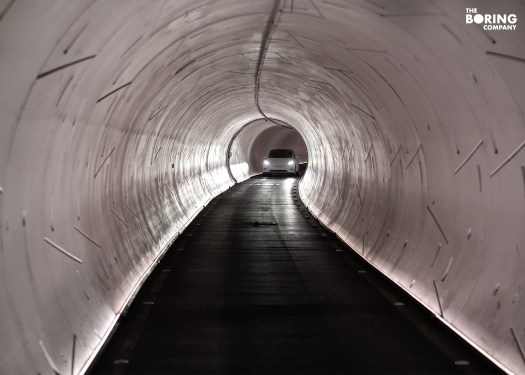Welcome back to TechCrunch Mobility, your central source for news on the future of transportation.
Elon Musk has frequently had a difficult relationship with regulators, often challenging or bypassing local and state laws where his companies operate. This week has been particularly active on that front. A ProPublica investigation found that Musk’s tunneling firm, The Boring Company, is facing nearly 800 alleged violations from Nevada regulators. These accusations include digging without approval, dumping untreated water onto city streets, failing to install required silt fences, and tracking dirt from construction sites onto public roadways.
Separately, Tesla’s insurance division was hit with an enforcement action by California’s Department of Insurance. The regulator accuses the company of routinely denying or delaying customer claims despite receiving years of warnings. This is a reminder that Tesla also operates as an insurance provider in certain states.
Tesla is also under renewed scrutiny from the National Highway Traffic Safety Administration. The agency has opened an investigation into Tesla’s Full Self-Driving technology after receiving reports that the software caused vehicles to run red lights or cross into wrong lanes. While the NHTSA has investigated Tesla before, this new probe is notable because it specifically targets the Full Self-Driving software. Elon Musk and Tesla shareholders have heavily invested in the company’s future as a leader in autonomous vehicle technology, as well as in robotics and artificial intelligence.
This single investigation is unlikely to derail Tesla’s plans, especially as the company just rolled out the newest version of its Full Self-Driving software. However, it represents increased scrutiny of the core technology Tesla is promoting and raises questions about its planned robotaxis, which rely on a version of this same software.
In other news, a July article from Wired discovered that General Motors was repurposing Chevy Bolt EVs from its shuttered Cruise robotaxi program. The vehicles were being driven on highways in Michigan, near Austin, Texas, and in the San Francisco Bay Area to develop simulation models and new driver-assistance technology. It now appears General Motors is moving forward with its autonomous vehicle development in potentially surprising ways. When GM absorbed Cruise in December 2024, it announced plans to combine Cruise’s technology with its own advanced driver-assistance efforts to develop fully autonomous personal vehicles. There is now chatter that GM is building out an autonomous vehicle team in Austin and Mountain View. This comes just months after GM began rehiring some of the employees laid off from Cruise.
In the world of deals, Joby Aviation sold 30.5 million shares to raise approximately $514 million. The company stated the funds will be used to support aircraft certification and manufacturing efforts, prepare for commercial operations, and for general corporate purposes. Joby plans to begin carrying passengers in its electric vertical takeoff and landing aircraft in Dubai in 2026, followed by operations in the United States. Investors did not react favorably to the share sale, as the shares were sold at a discount of $16.85 each, nearly 11 percent lower than their previous closing price.
Other notable deals from the week include Futurail, a European startup developing an autonomy stack for self-driving trains, which raised 7.5 million euros in seed funding. Nexcade, a London-based startup creating automation for freight forwarders, raised $2.5 million in a pre-seed round. Toyota and Metal Mining have also struck a deal to collaborate on the mass production of cathode materials for all-solid-state batteries destined for electric vehicles. Additionally, Tycho AI, a startup focused on autonomous drone navigation, raised $10 million in a Series A round. Finally, the fleet analytics company Utilimarc was acquired by Smith System, though the terms of the deal were not disclosed.
In regulatory news, California Governor Gavin Newsom signed a bill that grants Uber and Lyft drivers in the state the right to unionize as independent contractors.
On the partnerships front, DoorDash and Serve Robotics announced a multi-year agreement to use autonomous robots for deliveries across the United States. Separately, Lyft has formed a new autonomous vehicle partnership with Tensor Auto. The companies plan to deploy robotaxis in Europe and North America starting in 2027. Tensor Auto has roots in the Chinese robotaxi company AutoX.
In sales and production news, Lucid delivered a record number of electric vehicles in the third quarter. While its sales are still far from the company’s original projections, the recent report indicates progress.
Tesla revealed new standard versions of its Model 3 and Model Y, with starting prices of $36,990 and $39,990 respectively. These versions are quite bare-bones. Notably, they do not include the basic Autopilot feature. This move was not an act of innovation but rather a stripping away of features, and the resulting prices were not the deep discounts that had been previously suggested.
In infrastructure news, a startup called Allium Engineering is developing paper-thin stainless steel that could potentially change how bridges are built.
In a corporate move, Zero Motorcycles has shifted its key operations from California to a new European headquarters in the Netherlands. The company stated the move is intended to accelerate growth and sharpen its focus on global opportunities.

